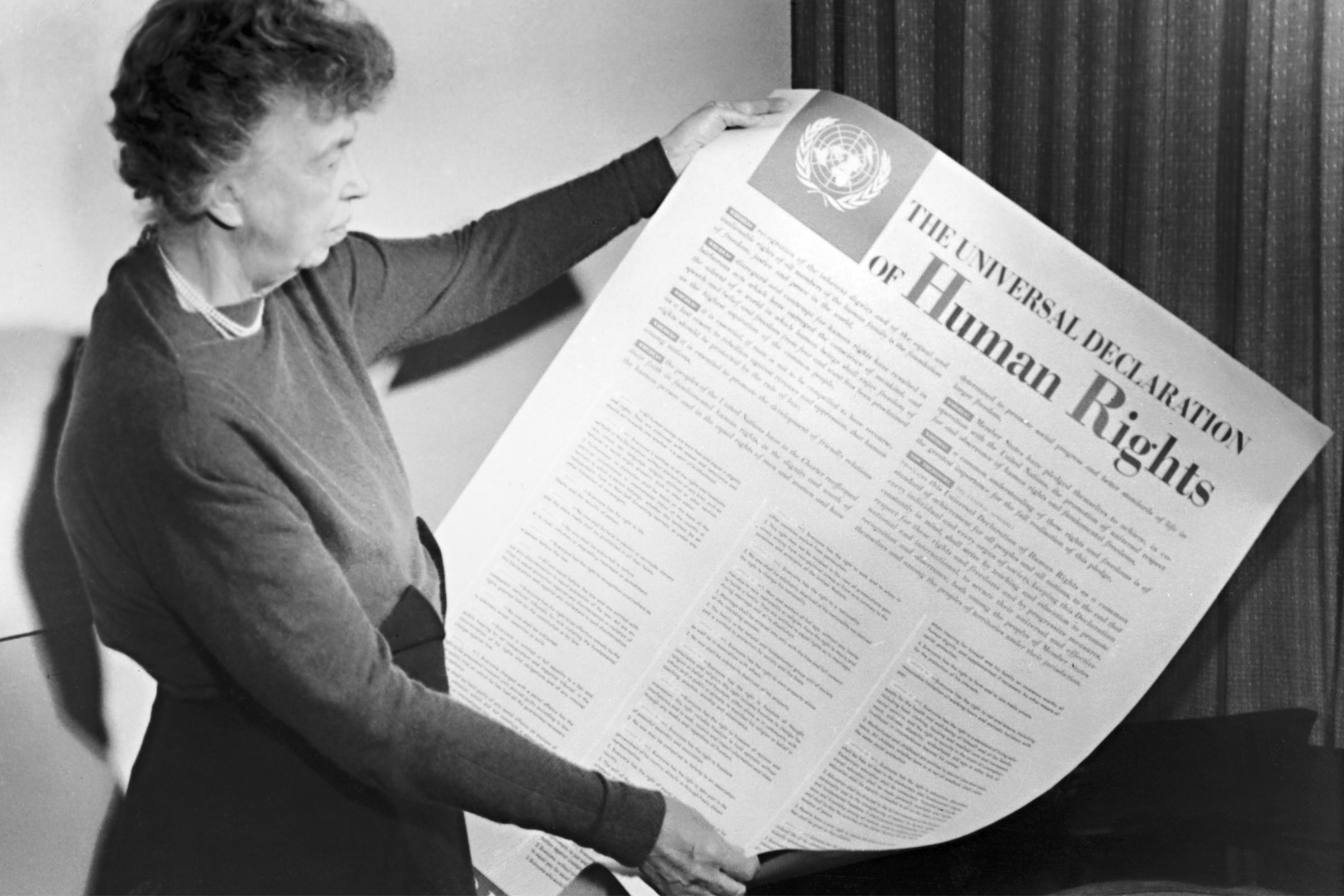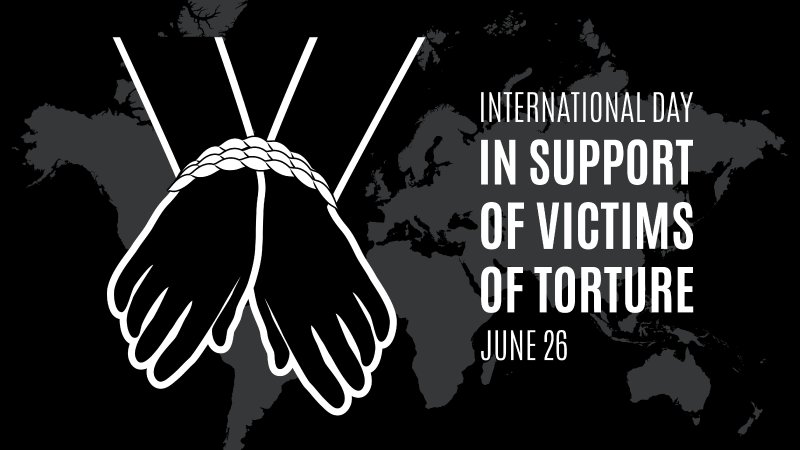
-
HOME
-
WHAT IS STANDOur Mission Our Values Our Help Contact
-
WHAT WE FIGHT FORReligious Freedom Religious Literacy Equality & Human Rights Inclusion & Respect Free Speech Responsible Journalism Corporate Accountability
-
RESOURCESExpert Studies Landmark Decisions White Papers FAQs David Miscavige Religious Freedom Resource Center Freedom of Religion & Human Rights Topic Index Priest-Penitent Privilege Islamophobia
-
HATE MONITORBiased Media Propagandists Hatemongers False Experts Hate Monitor Blog
-
NEWSROOMNews Media Watch Videos Blog
-
TAKE ACTIONCombat Hate & Discrimination Champion Freedom of Religion Demand Accountability
The Universal Declaration of Human Rights at 75: Earning Our Right to Be Called Human
It is the most translated document in the world.
It has been called “the international Magna Carta of all men everywhere.”
And its very existence marks an unparalleled achievement in history: the mustering, reining in, distillation and articulation of the often-passionately opposing viewpoints of 50 nations into a single six-page summation of what one should expect as a human being: the Universal Declaration of Human Rights (UDHR).

For the first time the world now had “a declaration of the basic principles of human rights and freedoms to serve as a common standard of achievement for all peoples of all nations,” as UDHR Committee Chair Eleanor Roosevelt put it.
Human Rights Day celebrates an idea—the very simple idea, expressed in six concise pages, that to be human is to have rights.
Throughout two frustrating years of persuasion, insistence, diplomacy and occasional scolding, Mrs. Roosevelt kept the committee members at the table, and the document was completed and ratified on December 10, 1948, a day forever after enshrined by the United Nations as Human Rights Day.
This year, we celebrate the UDHR’s 75th anniversary.
It is a document that has been championed and applauded as well as abused and violated, depending on where you are on the planet and when. But after three-quarters of a century, it has spread, and its message—that all human beings are born free and equal in dignity and rights—has inspired and given hope to millions.
Unlike so many other holidays, Human Rights Day does not commemorate a military victory or the birth of a famous person nor even the occasion of a miracle. Human Rights Day celebrates an idea—the very simple idea, expressed in six concise pages, that to be human is to have rights.
A casual reading of those six pages will illustrate how the Declaration applies to us all, and its 30 articles serve as a yardstick by which the actions and inactions of individuals, groups and governments may be judged.
Has anyone gossiped or spread falsehoods about you? That’s covered in Article 12: “No one shall be subjected to … attacks upon his honor and reputation.”
Has anyone stopped you from expressing yourself or belittled your opinions? Article 19: “Everyone has the right to freedom of opinion and expression; this right includes freedom to hold opinions without interference.”
“Where, after all, do universal human rights begin? In small places, close to home.”
Has anyone ever made a crude joke about your religion? Have you witnessed the constant drumbeat of headlines about religious communities being abused or suffering violence? Article 18 covers this: “Everyone has the right to freedom of thought, conscience and religion; this right includes freedom to change his religion or belief, and freedom, either alone or in community with others and in public or private, to manifest his religion or belief in teaching, practice, worship and observance.”
Abuse of freedom of religion has led to untold bloodshed and misery. Religious freedom, on the other hand, has brought peace and harmony. Article 18 of the Declaration is therefore crucial.
Indeed if more people paused, listened with respect and honestly sought to understand what their neighbors believed—many other violations of human rights would vanish.
As Mrs. Roosevelt said, “Where, after all, do universal human rights begin? In small places, close to home. So close and so small that they cannot be seen on any maps of the world. Yet they are the world of the individual person: the neighborhood he lives in; the school or college he attends; the factory, farm or office where he works. Such are the places where every man, woman and child seeks equal justice, equal opportunity, equal dignity without discrimination. Unless these rights have meaning there, they have little meaning anywhere.”
The UDHR’s 30 articles is an authoritative checklist of rights we all have every reason to demand. It is up to us to insist that it becomes more than a much-translated and revered document, but the acknowledged law of every land—obeyed, not through threat or penalty, but freely, with the recognition that to truly earn our birthright as members of the human race, we must each begin to act like a human being, and treat others like they are human, too.









